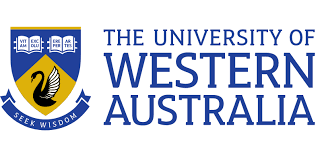At The University of Western Australia (UWA), we understand that the International Baccalaureate (IB) Diploma focuses on inquiry, intercultural understanding and creativity. Given the rigorous, integrated nature of the IB curriculum, IB students are well prepared for university and will already be on an educational pathway consistent with UWA’s educational principles.
Our innovative course structure is based on a comprehensive international model and is wide-ranging and flexible, allowing you to be creative in choosing your pathway to success. You can choose from more than 65 course majors and will undertake units which have a global or cultural focus, such as a language or a Student Exchange or Study Abroad program. This ensures that just like the IB program, a degree from UWA equips you with a global outlook as well as critical analytical skills.
In addition to the career benefits of a UWA degree, you’ll enjoy an outstanding student experience. Our picturesque campus is located on the Swan River near Perth’s CBD, and we have more than 125 societies and clubs for you to choose from, ensuring you can enjoy a vibrant social, cultural and sporting life as a UWA student.
We believe it is important to accurately reflect IB scores in UWA admissions standards and have made significant adjustments to reflect the IB curriculum including students’ study of a second language and standard or higher-level mathematics. We welcome all applicants who have completed the IB program and who meet the following requirements:
- Satisfy the University’s English language competence requirement by satisfactory performance in English language subjects (English A1 at HL or SL - Minimum score 4; English A2 at HL or SL - Minimum score 4; or English B at HL - Minimum score 5).
- Achieve a sufficient number of International Baccalaureate Diploma points to be offered a place.
- Satisfy any prerequisite subject requirements for your chosen course and major.
Qualification through WACE, TEE or equivalentPass in English, English Literature, or English as a Second Language
GCE O-level (GCSE and IGCSE)Minimum grade C / C6 in English, English Language, English (First Language) or English Literature.
Minimum grade A in IGCSE English as a Second Language, with grade 1(One) in Oral/Aural Communication.
Must be endorsed by CIE, OCR, Edexcel, AQA or other UK authority (independent and school-assessed O-levels are not sufficient).
TOEFL (paper-based)570 with a Test of Written English (TWE) of no less than 4.5
Scholarship applicants require 580, with 45 in the Test of Spoken English (TSE) and 4.5 in the Test of Written English (TWE)
IBT TOEFL (Internet-based test score)82 with 22 for writing, 20 for speaking, 20 for listening, and 18 for reading
IELTS (Academic)6.5 (no band lower than 6.0)
Cambridge Certificate of Proficiency in EnglishC pass
Cambridge Certificate in Advanced EnglishB grade
CELT Bridging CourseOverall score of 70% with a minimum of 65% for each section
Law School requires an overall score of 80% with a minimum of 80% for reading and writing, and a minimum of 75% for speaking and listening.
Graduate School of Education requires an overall score of 75% with a minimum of 70% in reading and writing.
Dental School requires an overall score of 75% with a minimum of 70% in reading and writing.
UWA Business School requires an overall score of 70% with a minimum of 70% in reading and writing.
Pearson Test of English (PTE) (Academic)Overall score of 64 with a minimum score of 64 in the Reading and Writing sections,
59 in the Speaking section and 54 in the Listening section.
Law School requires an overall score of 70 with a minimum score of 70 in each section.
Other qualifications assessed on an individual basis
